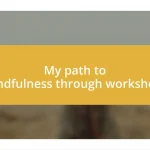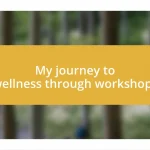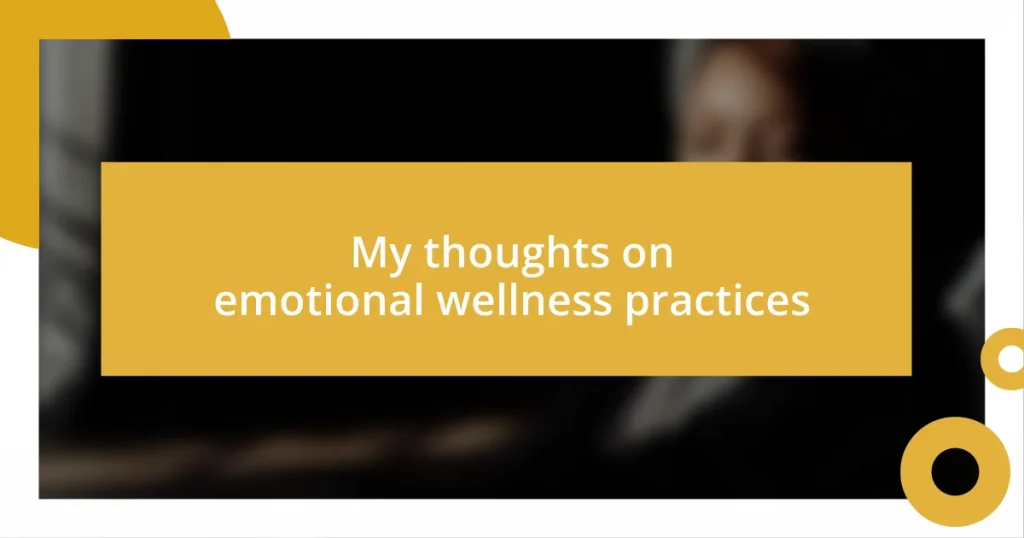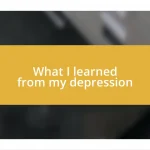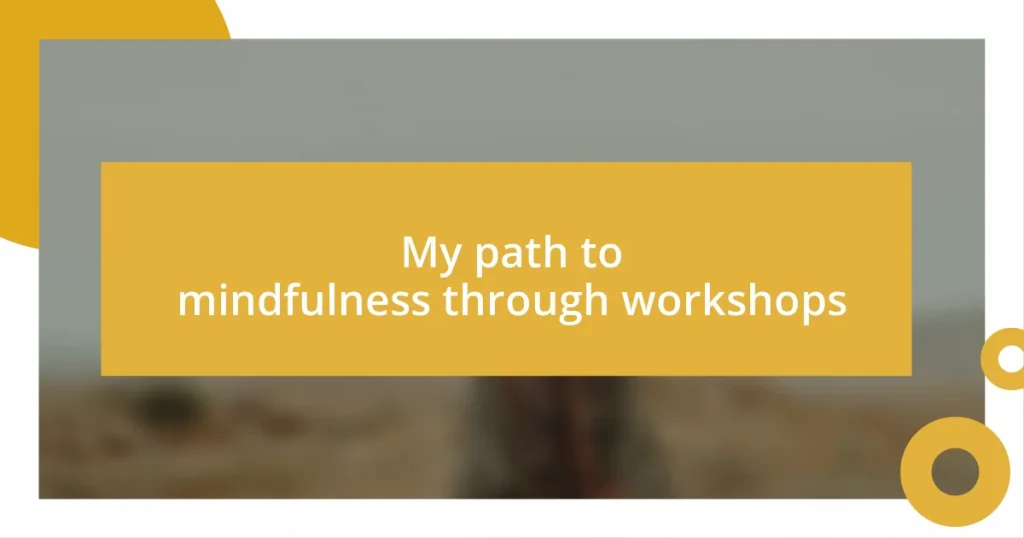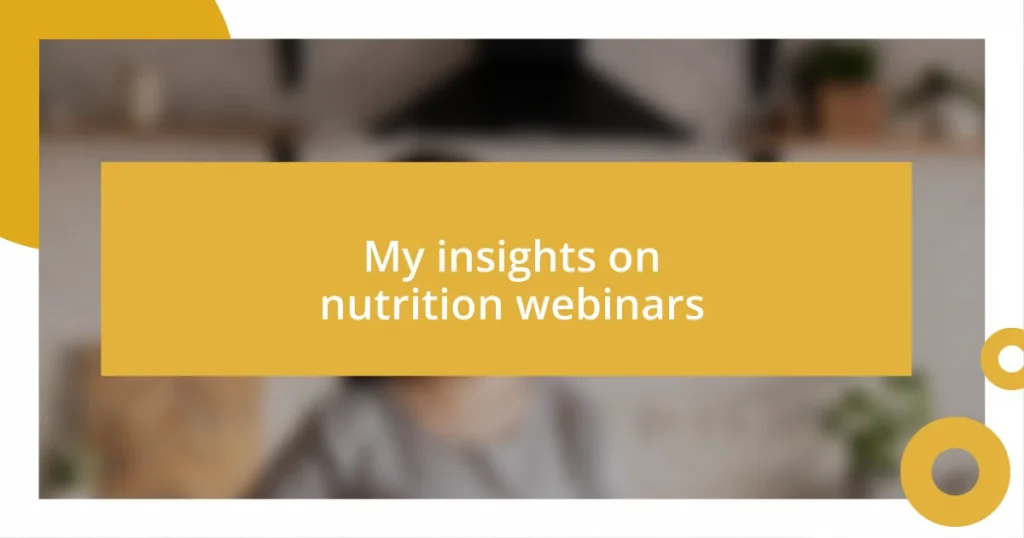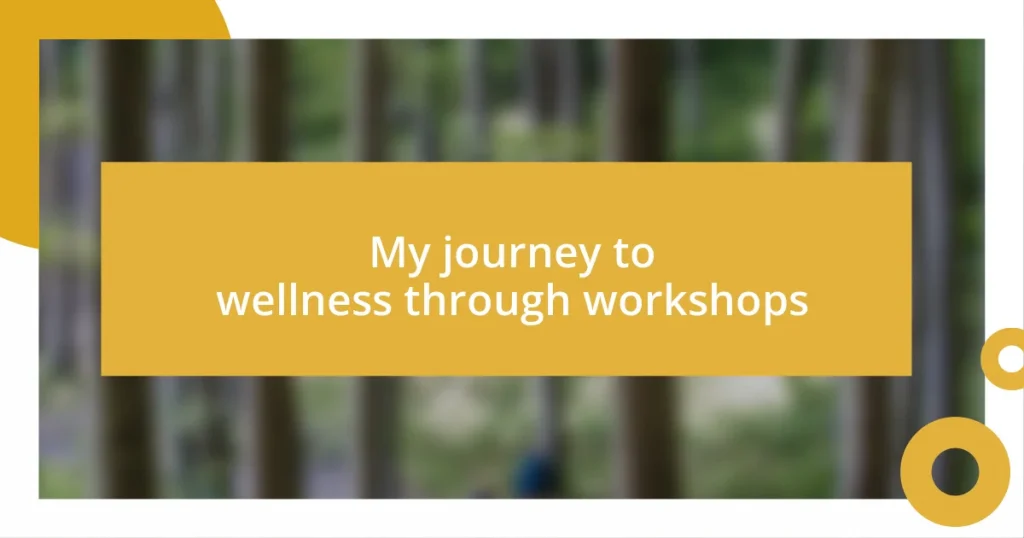Key takeaways:
- Emotional wellness practices like mindfulness meditation, journaling, and fostering social connections significantly enhance emotional health and resilience.
- Daily habits such as gratitude journaling, mindful breathing, and regular self-check-ins are effective for maintaining emotional wellness and managing stress.
- Resources like self-help books, podcasts, and community workshops can provide support and practical tools for individuals seeking to improve their emotional well-being.
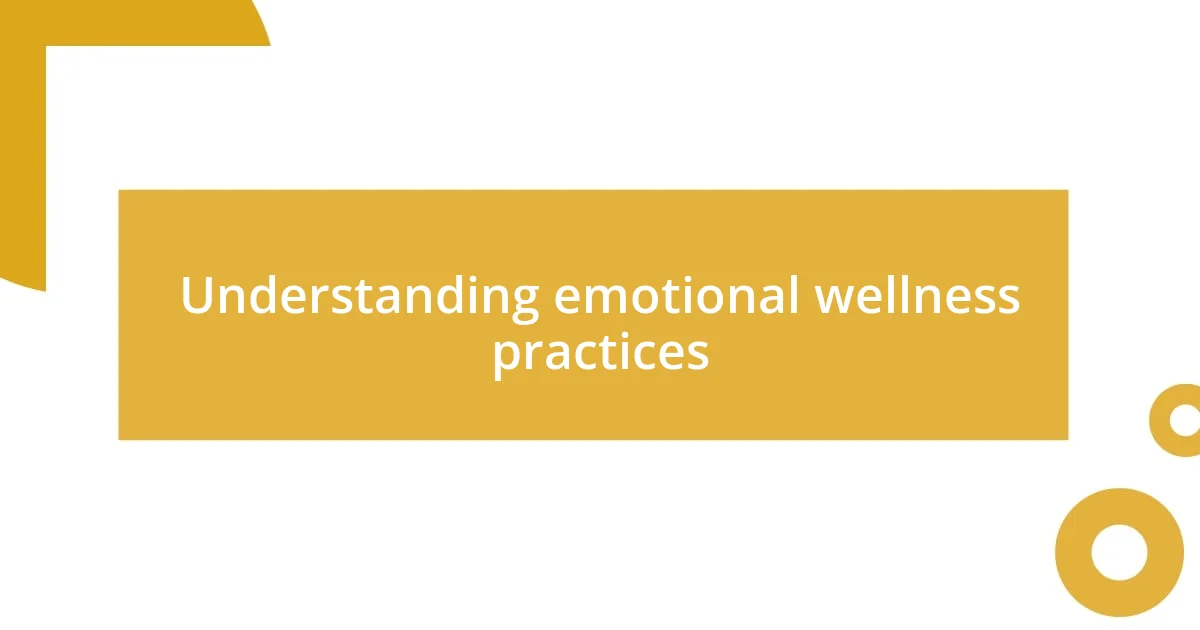
Understanding emotional wellness practices
Emotional wellness practices encompass a range of activities aimed at fostering a positive emotional state. I remember when I first discovered mindfulness meditation; it felt like a small spark igniting a deeper understanding of my emotions. It made me wonder—how often do we truly pause to observe our feelings instead of just reacting to them?
Engaging in these practices can profoundly change our perspective on stress and anxiety. For instance, journaling has become a lifeline for me—not only does it provide a space to release thoughts, but it also helps me reflect and grow. Have you ever written down your feelings only to realize patterns that you hadn’t noticed before?
One thing that stands out to me is how connecting with others can enhance emotional wellness. I’ve found that sharing experiences with friends over a cup of tea often leads to meaningful conversations about what we’re going through. It leads me to think: isn’t emotional wellness often about the connections we nurture with ourselves and those around us?
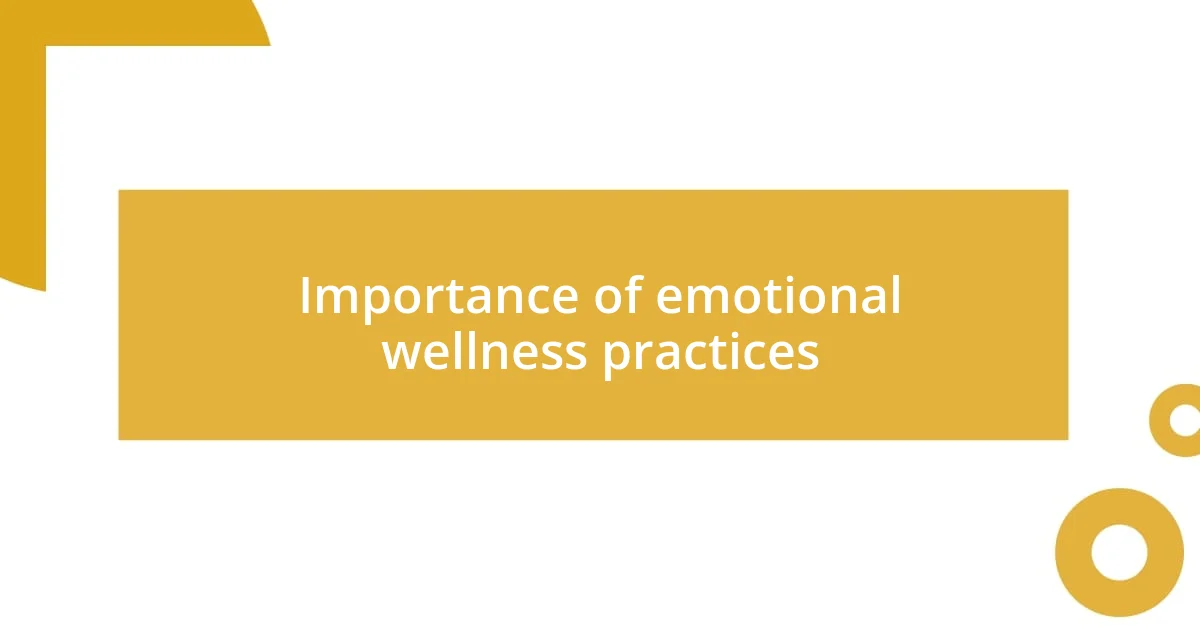
Importance of emotional wellness practices
Practicing emotional wellness is essential for maintaining a balanced life. I’ve often found that when I prioritize these practices, my overall mood lifts and I handle challenges with more resilience. For example, simple habits like deep breathing or gratitude journaling create a buffer against stress, allowing me to approach difficult situations with a clearer mindset.
Moreover, emotional wellness isn’t just a personal journey—it’s a key component of healthy relationships. I remember a time when I felt overwhelmed by a tough project at work. By sharing my feelings with a colleague, I gained not only support but also new perspectives that made the load feel lighter. This connection highlighted how emotional wellness can also encourage empathy and understanding among friends and colleagues, enriching our interactions.
Finally, integrating emotional wellness practices into daily life yields long-term benefits. I consistently notice that even small changes, like dedicating a few minutes for self-reflection each day, pave the way for more significant shifts in my emotional landscape. This consistent effort ultimately nurtures not only my emotional health but also engenders a sense of purpose and fulfillment that can be life-changing.
| Emotional Wellness Practices | Benefits |
|---|---|
| Mindfulness Meditation | Reduces stress and enhances clarity |
| Journaling | Facilitates self-reflection and emotional release |
| Social Connections | Fosters empathy and support |
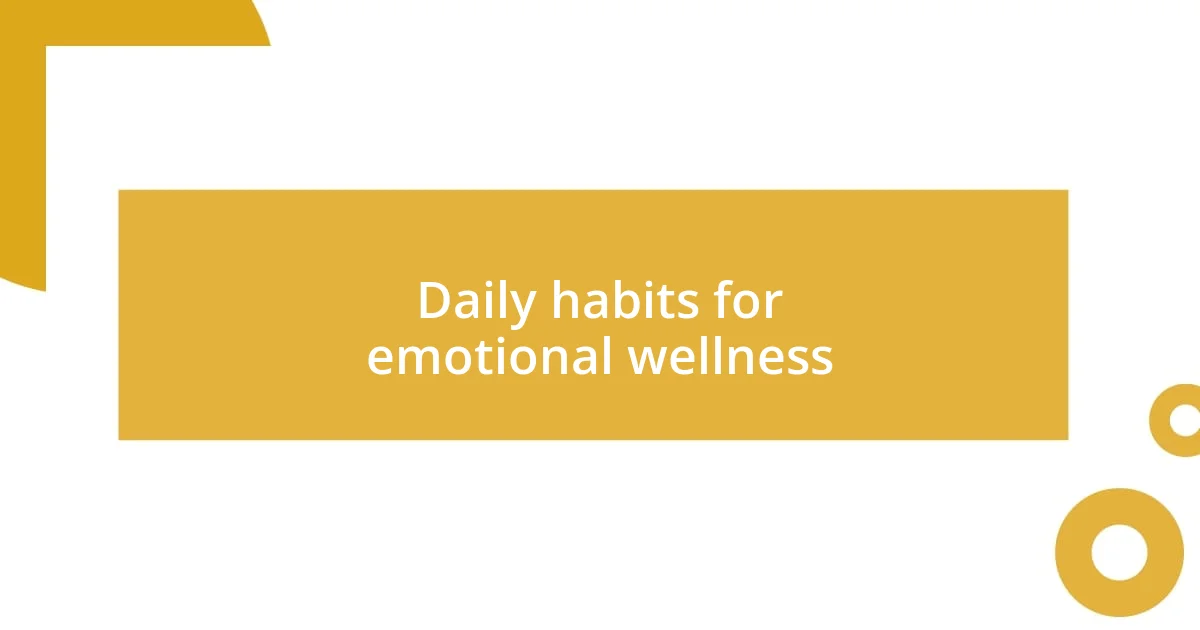
Daily habits for emotional wellness
Daily habits play an essential role in sustaining emotional wellness. One habit I’ve come to cherish is the practice of gratitude. Each night, I jot down three things that brought me joy during the day. It sounds simple, but this small act often lifts my spirits even on tough days. When I pause to reflect on the positives, it shifts my focus from what’s lacking in my life to the abundance I often overlook.
Here are some daily habits that can enhance emotional wellness:
- Mindful Breathing: Taking a few minutes to focus on my breath helps ground me, especially in moments of stress.
- Nature Walks: I find that stepping outside, even for a brief walk, connects me to the world and sparks my creativity.
- Digital Detox: Limiting screen time, especially on social media, has profoundly improved my mental clarity and focus.
- Morning Affirmations: Starting the day with affirmations sets a positive tone, reminding me of my strengths and intentions.
- Regular Check-Ins: I make it a habit to ask myself how I’m feeling. This self-inquiry often leads to insights that guide my actions throughout the day.
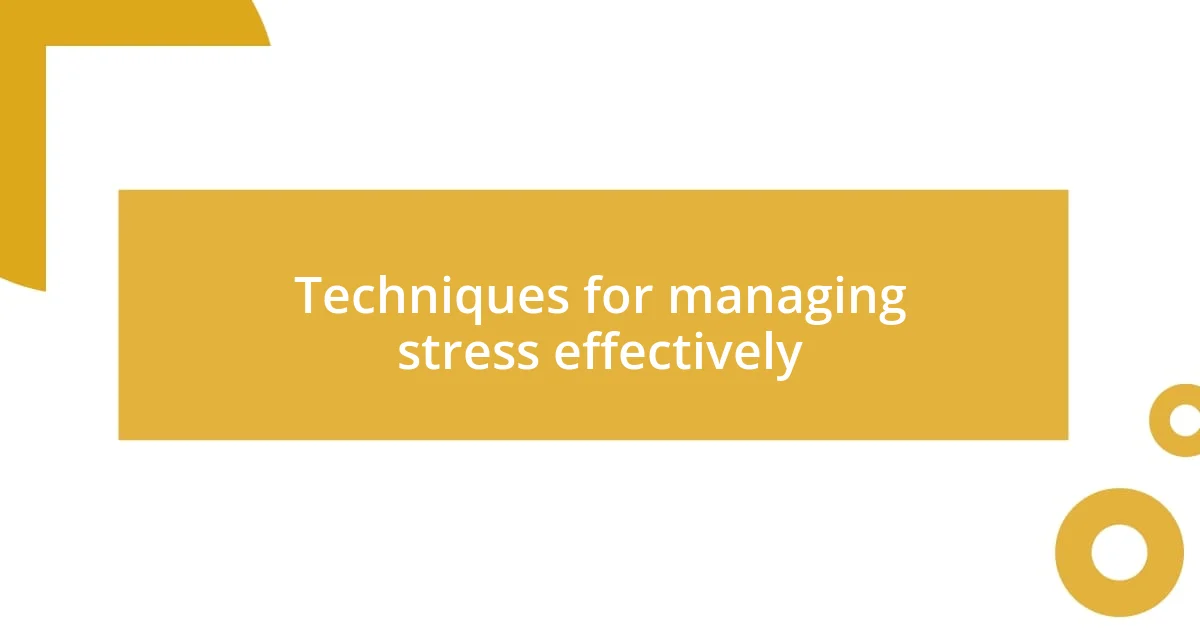
Techniques for managing stress effectively
One effective technique for managing stress that I’ve found immensely helpful is mindfulness meditation. Whenever I feel the weight of the world pressing down, spending just five to ten minutes focusing on my breath creates a powerful shift in my mindset. Have you ever noticed how simply pausing to breathe can bring a sense of calm? I often return to this practice, especially during chaotic days, and it never fails to ground me.
Another strategy I incorporate is journaling. On particularly stressful days, I take a moment to jot down my feelings. I always ask myself, what’s been bothering me the most? By putting my thoughts on paper, I not only release pent-up emotions but also often discover new insights about what’s truly causing my stress. It’s fascinating how externalizing our concerns can shift our perspective, isn’t it?
Lastly, developing a supportive social network has been a game-changer for me. Whenever I’m overwhelmed, a simple chat with a friend can reduce my stress levels significantly. I’ve realized that sharing my experiences not only helps me feel less isolated, but it also invites empathy and understanding from others. Have you ever found comfort in talking things out? I truly believe that connecting with others can be an invaluable stress management tool in our emotional wellness toolkit.
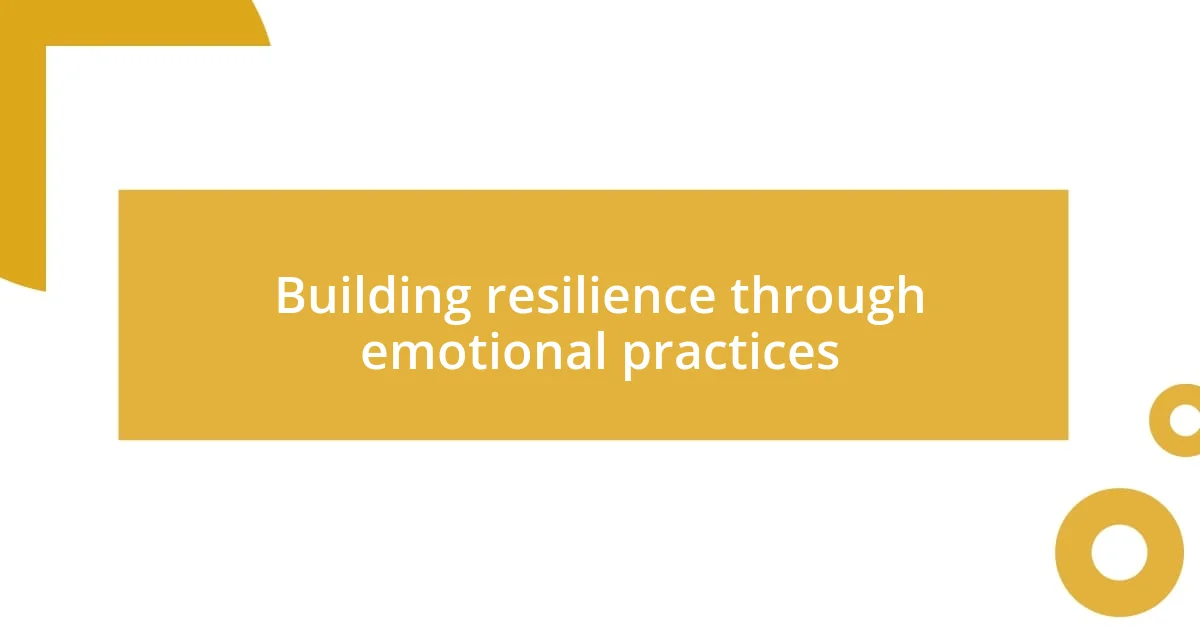
Building resilience through emotional practices
Building resilience is like creating a safety net for our emotional health, and I’ve discovered that emotional practices are the ropes that support it. One practice that has become pivotal in my life is visualization. When I’m facing challenges, I picture myself overcoming them. It’s almost as if I’m stepping into a version of myself that’s already achieved that success. This mental rehearsal not only boosts my confidence but also reminds me that I have the tools to navigate tough times.
In times of uncertainty, I’ve found that expressing my emotions is crucial for resilience. I remember a period where I felt particularly overwhelmed; instead of bottling it up, I chose to share my feelings with a close friend. The relief I felt after that conversation was profound! It’s astonishing how simply articulating our struggles can lighten the emotional load. Have you ever experienced that freeing sensation when someone truly listens to you? It’s in those moments that I realize resilience isn’t just about personal strength; it’s about leaning on others, too.
Another emotional practice that bolsters my resilience is embracing self-compassion. There was a time when I was extremely critical of myself, often lingering on my perceived failures. However, when I started treating myself with kindness—acknowledging that it’s okay to be imperfect—I noticed an incredible shift. It’s fascinating how nurturing our own emotions can fortify our ability to bounce back from difficulties. I often ask myself, how can I be more understanding toward myself today? This simple question has transformed my self-talk and, consequently, my resilience.
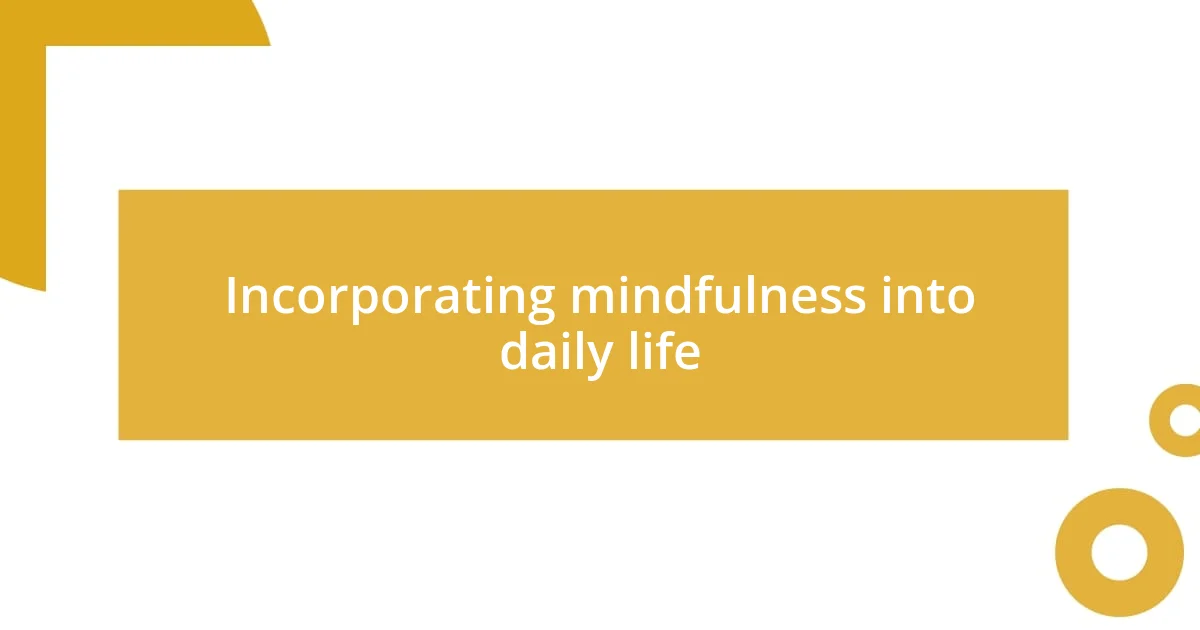
Incorporating mindfulness into daily life
Incorporating mindfulness into daily life can feel challenging, but I’ve found that small intentional practices make a big difference. For instance, I’ve started to pay attention while I’m washing dishes. Instead of rushing through the task, I immerse myself in the sensation of the warm water and the smell of the soap. It’s moments like these that remind me to be present. Have you ever considered how mundane tasks can become mini-meditations?
Another practice I’ve integrated is mindful walking. I remember a day when I felt particularly overwhelmed; I decided to step outside and take a slow walk around my neighborhood. With each step, I focused on how my feet connected with the ground and the rhythm of my breath. This not only cleared my mind but also lifted my mood. Isn’t it amazing how simply shifting our focus in these moments can create a sense of freedom?
Lastly, I’ve begun to set reminders throughout my day, prompting me to pause and breathe. At first, I thought it seemed silly, but these little nudges have become anchors in my routine. I often reflect, what would happen if everyone made space for just a minute of mindfulness? I believe incorporating these practices can build a bridge to a more enduring sense of calm, making daily life more manageable and enjoyable.
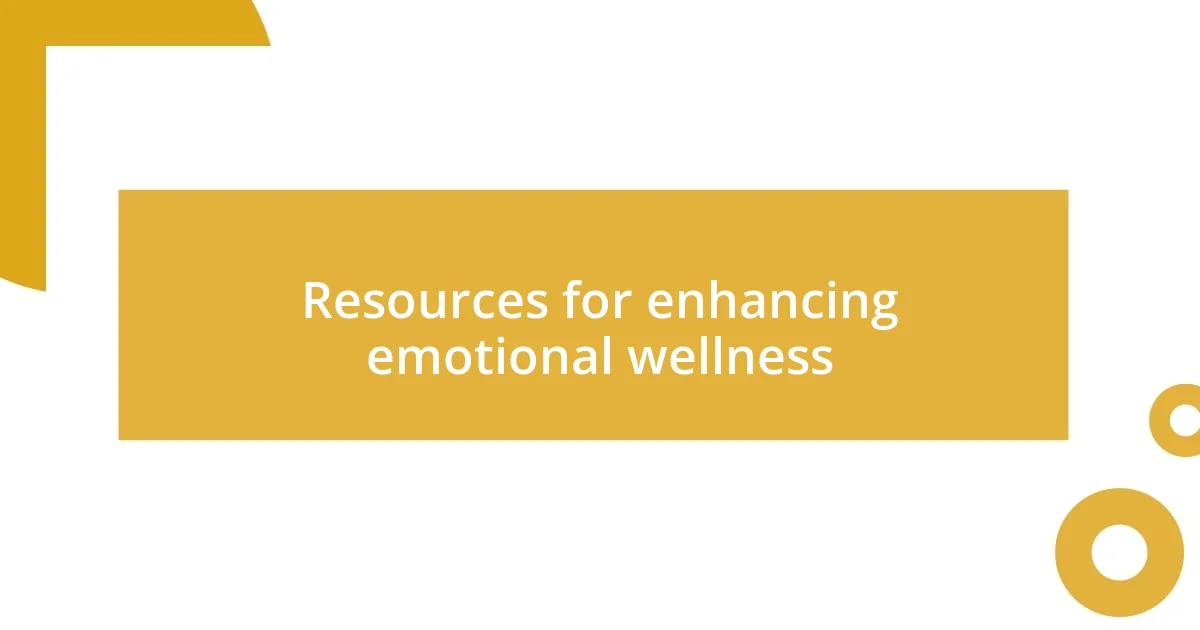
Resources for enhancing emotional wellness
When it comes to enhancing emotional wellness, I’ve found that exploring self-help books can be incredibly beneficial. For instance, “The Gifts of Imperfection” by Brené Brown opened my eyes to the importance of vulnerability. The author’s insights resonated deeply with me, prompting me to embrace my imperfections instead of hiding them. Have you ever felt like your flaws were holding you back? I can assure you that confronting those feelings head-on can be a freeing journey.
Podcasts have also become a valuable resource in my emotional wellness toolkit. There’s one podcast, in particular, called “Unlocking Us,” where guests discuss their personal struggles and triumphs. Listening to these shared stories feels like having a heartfelt conversation with a friend. It’s comforting to know that others grapple with similar emotional challenges. Is there a specific podcast that has inspired you? I encourage you to explore these narratives; you might find solace and guidance in listening.
Lastly, I often turn to community workshops or local support groups for nurturing my emotional health. Attending a mindfulness workshop last year transformed my understanding of stress management. I remember feeling a wave of camaraderie as we practiced deep breathing together. The shared experience underscored the notion that we are not alone in our journeys. Have you ever participated in a group setting that made you feel connected? It’s incredible how these resources can kindle a sense of belonging and provide practical tools for emotional resilience.
